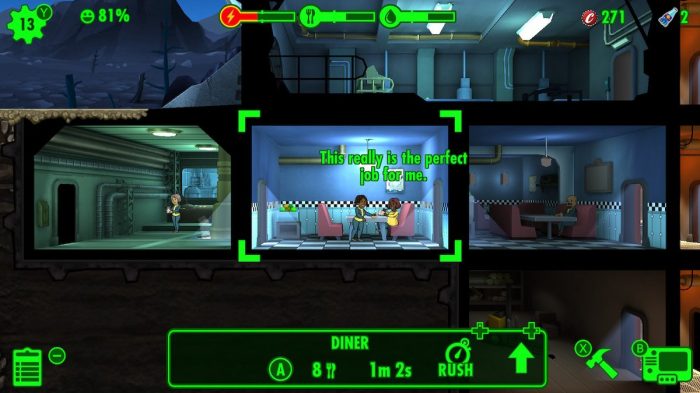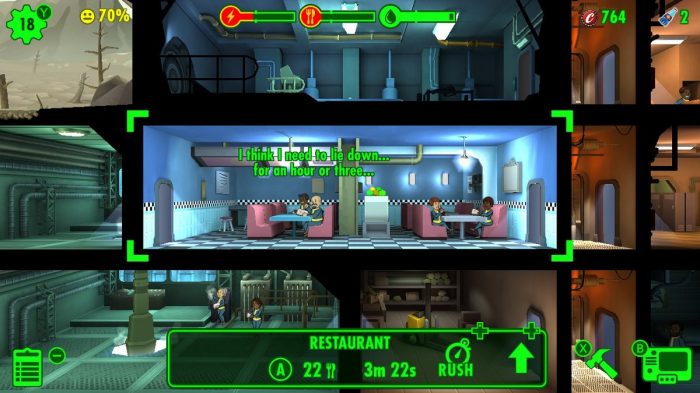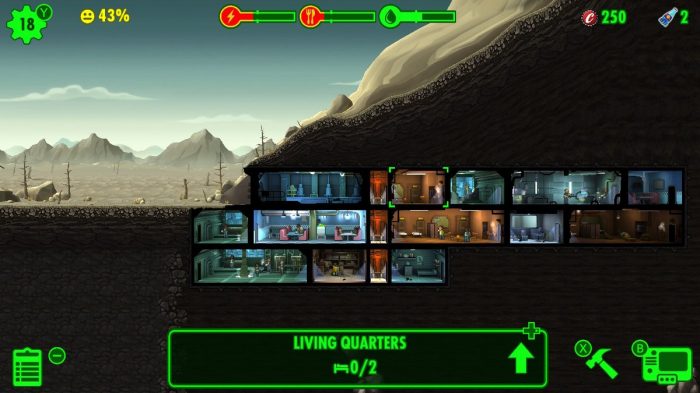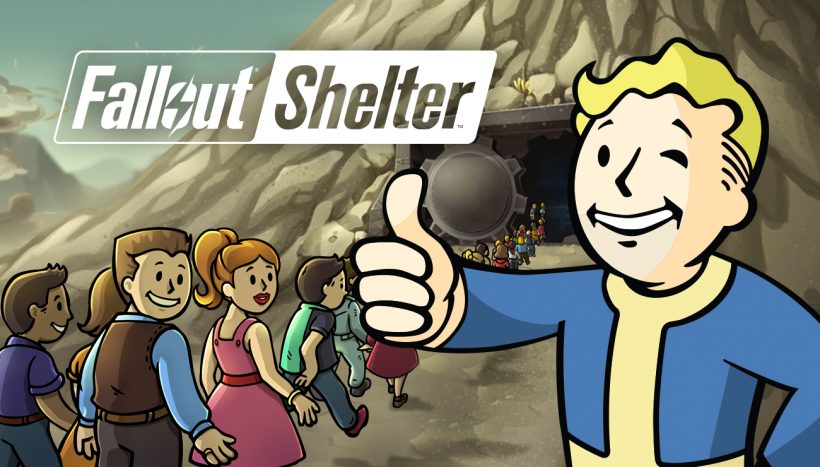Fallout is on Switch – take shelter!
Nintendo fans have been calling for the series for years now, and this summer Fallout would finally cross the platform divide as Bethesda brought it to the Switch. But this isn’t your typical Fallout.
Fallout Shelter is a free-to-play micro-management game, which has you building an enclosed civilisation in an underground bunker. Starting with just a few individuals, you’ll set them to work on generating electrical power, making food and producing water to keep your confined eco-system going. Everything is done on a real-time basis – say you set to people to work on energy, you’ll have to wait a set time before that task is completed. Completing these tasks will generate the in-game currency which can be spent on adding more rooms to your shelter, focusing on medicine, sleeping quarters and other things which can improve your residents’ quality of life.

As is so often the case with these freemium type games, it’s the pacing of the game which makes things seem a bit of a chore. You have a set number of residents which you can allocate to a task at any one time, and some residents are more efficient at certain tasks than others. Figuring this out isn’t wonderfully easy or well-explained – however – you’re provided with lists of stats regarding each individual, but it could be clearer to read. You can choose to fast-track individual tasks, but this comes with a risk of failure, of which the chances increase each time you attempt it. If it goes well, great, you’ve got your resources. But if it goes the other way, not only is the timer on the clock reset, your characters will also lose health battling fires from overuse of the equipment, or even taking on massive insectoid parasites.

For me, standout examples of this genre were the mobile titles focused on building the worlds of The Simpsons and Family Guy. Yes, these too were focused on allocating tasks to individual characters to try and generate enough experience points to unlock new objects and characters, but the characters in those worlds are far more recognisable than those of Fallout Shelter. Fallout Shelter’s characters are as generic as can be, looking the same for the most part. You can unlock outfits for them, provide them with weapons, and even see their thoughts and feelings, but there’s not the unique personality coming across to keep you engrossed.

It’s a game that’s much better in handheld mode – you don’t want to be rushing across the screen using the control stick on the big TV when things start to go wrong. When you’ll need to be leveling up inhabitants and placing new rooms, a quick flick of your finger is by far the preferential method. The game’s complexity increases to a point, but you won’t be sitting around all day playing it; perhaps a half hour a day is the perfect amount if you’re keeping on top of everything in small doses.
Here’s hoping for a nice Fallout boxset to come to the Switch in the future to show Nintendo fans the core series which they’ve missed. It would be yet another most welcome third-party addition to the system’s library.
Fallout Shelter
Summary
Fallout Shelter isn’t the introduction to the series Nintendo fans deserve. It’s a rather mediocre freemium game, and Bethesda would likely have been better served getting a main series game out on Switch first.

